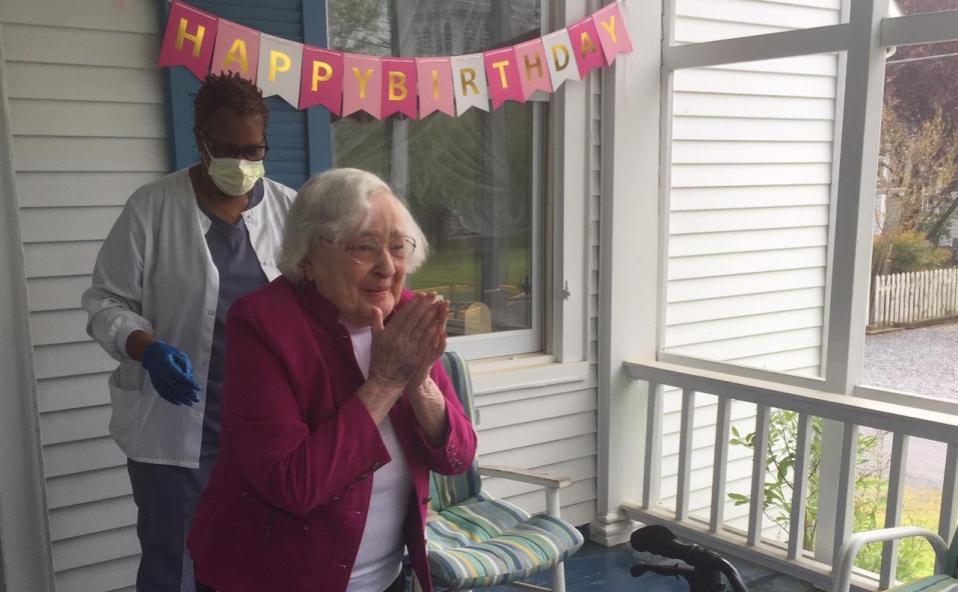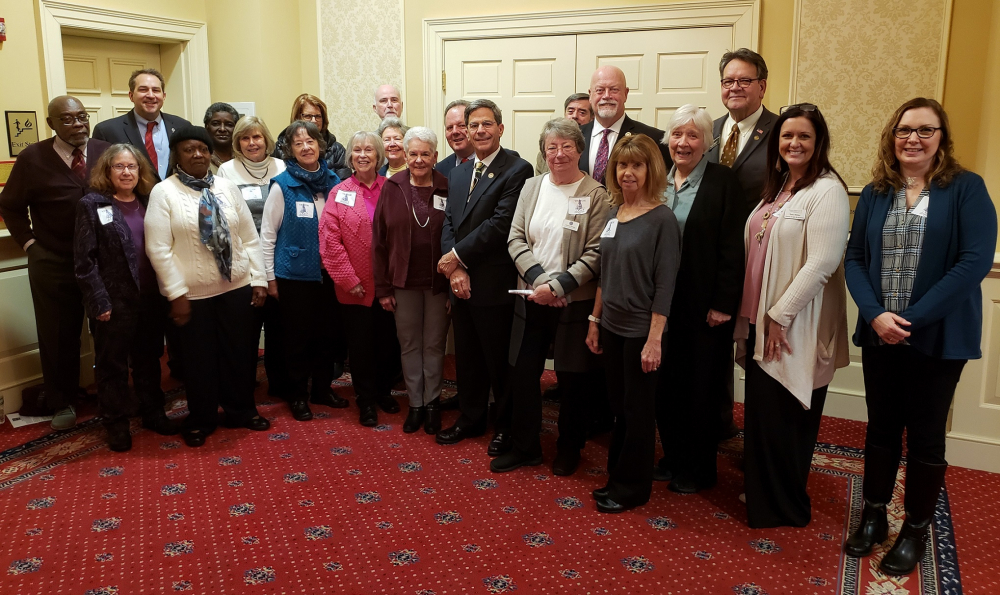Seniors are an especially vulnerable population during COVID-19, given their increased co-morbidities. They often feel stressed and anxious due to the increased risk of not only contracting COVID but also suffering more complications if they contract the virus. Some seniors may also be feeling increased sadness related to the isolation caused by the pandemic.
According to Mary Beth Brinsfield, MSN, CRNP-PMH, PMHNP-BC, Psychiatric Nurse Practitioner at For All Seasons, “A common theme I hear from my older patients is how they miss seeing their families, particularly their grandchildren.”
Rob Sanchez, MD, a family practice physician specializing in geriatrics and hospice medicine, comments, “My senior patients have done pretty well, following the quarantine instructions and staying home.”
He adds that fear seems to be the worst thing facing seniors. He encourages patients to listen to less television and listen to more music. He comments, “I suggested that to a patient, and they called me to tell me how it helped them cope better.”
Dr. Sanchez also gives hope to his patients sharing that at some point that there will be a vaccine for coronavirus and that the medical community knows more about the virus now than they did in February and March.
His wife, Lynn Sanchez, a Mental Health Advocate who also works in her husband’s practice, echoes his sentiments about music, “Music can transport us. Seniors can listen to the music channels on cable television or their Alexa or Spotify. You may even ask a senior family member to dance outside with you.”
In a recent article, “Coronavirus and COVID-19: Caregiving for the Elderly,” by Alicia Arbaje, MD, MPH, Ph.D., who specializes in internal medicine and geriatrics at Johns Hopkins Medicine, Arbaje says, “Physical distancing doesn’t have to mean isolation or loneliness. We need to keep older adults safe, but also keep in mind that social isolation can have a negative impact on older people’s immunity and mental health.”
She encourages technology for helping seniors stay connected, showing them how to video chat with others using smartphones, laptops, or tablets and how to use apps on these devices to provide captions for adults with hearing challenges. She adds, “Encourage friends and family outside of your household to telephone, write notes or send cards to lift your loved one’s spirits.”
Brinsfield adds, “Planning drive-by visits, having grandchildren color pictures or write letters is an easy way to help seniors not feel as isolated and helps to keep them in communication with loved ones.”
She further explains that as neighbors and friends, we can do similar acts that can have a positive impact. Checking in on seniors to make sure they have their basic needs met will help to alleviate the anxiety of how they get food supplies (another stressor) or medications. She states, “Making or bringing them food, could also be a way to show they are cared about and not forgotten. Sending cards and notes of thoughts or humor are another way to assist in brightening their day, as well as making phone calls to them. Outside activity is also important for mental health. Inviting a senior to go for a walk or sit on the porch is an easy way for you and them to receive the mental health benefits of fresh air!”
Lynn Sanchez explains that seniors need to have purpose. She credits Erik Erikson’s theory on human development – engaging older adults to repurpose their life skills, and thus reapply wisdom to new areas of their lives. She suggests such activities as knitting comfort shawls, making face masks to protect against the virus, making an indoor terrarium, purchasing a mechanical pet, sorting old photos and talking about the stories that go with them (like their wedding day), and organizing old photos and recipes.
She shares that a nursing home took the shoes of its patients and put them in the lobby to help tell the stories of their lives. “Sharing the memories and the stories is important. Children can even write questions for their parents to answer.”
Dr. Arbaje asks family members to keep in mind that many older people, especially those living with chronic illness, also have important relationships with their caregivers. She states, “To help them stay in touch, ask their doctors’ offices if they offer telemedicine, which enables doctors and patients to communicate over video, email or other means rather than face-to-face.”
“As we enter Phase 2, we are eager to bring patients back into the office. They appreciate being able to come in and see us. It is great for them to have some type of contact again,” Dr. Sanchez adds.
Lynn Sanchez comments, “Because all of our patients come in masked, we are realizing how important a smile is. We are having to learn all sorts of new non-verbal communication.”
Medical providers remind us that it is also important to note that at any time, if there is concern that a seniors’ mental health is posing a safety risk, 911 should be called.
For All Seasons provides therapy, advocacy, psychiatry, and education to Caroline, Dorchester, Kent, Queen Anne, and Talbot counties. The agency accepts all private insurances, medical assistance, and supports English and Spanish speaking individuals regardless of one’s ability to pay. For All Seasons 24-Hour, confidential crisis hotlines are 410.820.5600 for English Hotline and 410.829.6143 for Spanish Hotline. Text available in English or Spanish at 410.829.6143.
Don’t miss the latest! You can subscribe to The Chestertown Spy‘s free Daily Intelligence Report here



 Event attendees should meet at Londonderry’s Clubhouse to enjoy refreshments before private tours begin.
Event attendees should meet at Londonderry’s Clubhouse to enjoy refreshments before private tours begin. “We are excited to safely welcome visitors back to our campus and provide this exclusive event to prospective homeowners,” said Smith. “COVID-19 has caused many older adults, especially those with out-of-town families, to reevaluate their current living situation and consider retirement living. We are thrilled to welcome them to Londonderry and share more about our amenities, services and commitment to a healthy, active and close-knit community.”
“We are excited to safely welcome visitors back to our campus and provide this exclusive event to prospective homeowners,” said Smith. “COVID-19 has caused many older adults, especially those with out-of-town families, to reevaluate their current living situation and consider retirement living. We are thrilled to welcome them to Londonderry and share more about our amenities, services and commitment to a healthy, active and close-knit community.”
 Today, Londonderry on the Tred Avon shared its response plan to the COVID-19 outbreak.
Today, Londonderry on the Tred Avon shared its response plan to the COVID-19 outbreak.